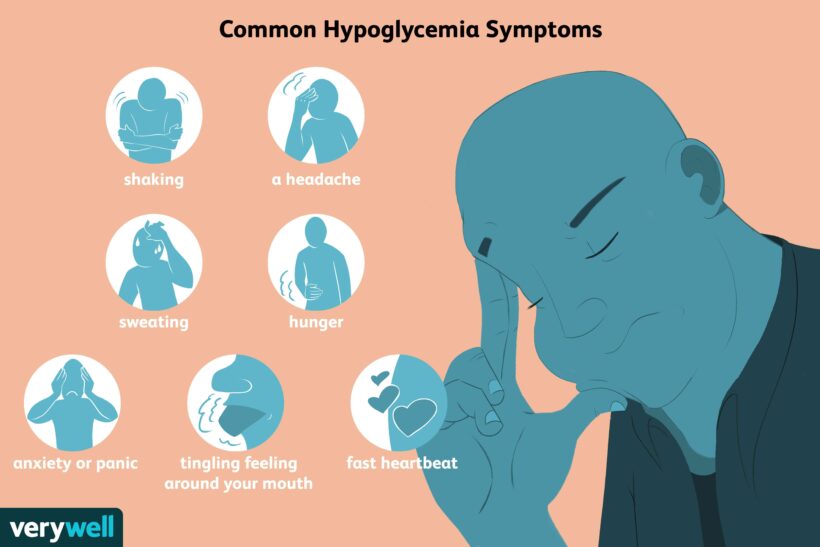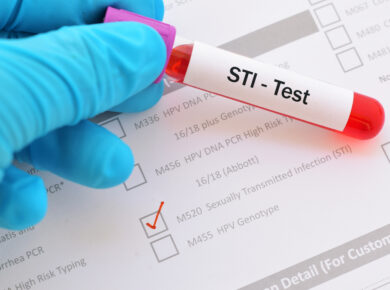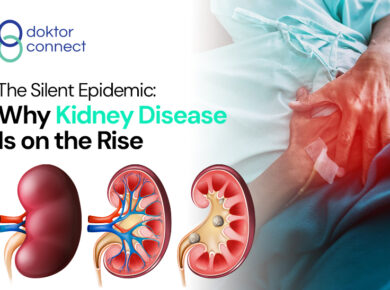Hypoglycemia also called low blood sugar or low blood glucose can be dangerous if not treated. Most people would complain of lightheadedness following poor dieting during a strenuous day which could be associated with low blood levels. A simple carb meal could fix this. Hypoglycemia is common in a diabetic person.
What Exactly is Hypoglycemia?
Hypoglycemia is when the blood sugar levels drop below a healthy range.
Everyone has different levels of blood sugar at different times. But for most people, low blood sugar is defined as below 70 mg/dL (milligrams per deciliter). Severe hypoglycemia usually happens at lower levels and is generally defined as a low blood sugar event that requires the assistance of someone else to correct the low blood sugar. It is dangerous and needs treatment right away.
What Causes hypoglycemia?
In people with diabetes, the main causes of a low blood sugar level are:
A)The effects of the medicine – especially taking too much insulin, medicines called sulfonylureas (such as glibenclamide and gliclazide), or some antiviral medicines to treat hepatitis C.
B)delaying a meal -not eating enough carbohydrate foods in your last meal, such as bread, cereals, pasta, potatoes, and fruits.
C)Unplanned excess physical activity without eating enough can also cause a drop in blood sugar levels.
D)Drinking alcohol on medications can also lead to low blood sugar, especially if it replaces food.
2) Possible causes without diabetes
Even if you don’t have diabetes, you may experience low blood sugar. However, this condition is less common in people without diabetes.
Possible causes of low blood sugar in these people are:
- certain medications, such as quinine
- some medical conditions, such as hepatitis and kidney disorders
- a tumor that produces excess insulin
- your body releases too much insulin after eating (called reactive hypoglycemia or postprandial hypoglycemia)
- not eating (fasting) or malnutrition
- a complication of pregnancy
Common symptoms
Early signs of a low blood sugar level include:
1)sweating
2)feeling tired
3)dizziness
4)feeling hungry
5)feeling shaky or trembling
6)A fast or pounding heartbeat (palpitations)
7) Becoming easily irritated, tearful, anxious, or moody
speak to a doctor if you notice any unusual symptoms, they can arrange some simple tests to check if your blood sugar level is low and find out the cause.
How to Manage and prevent this condition :
1)Check your blood sugar often
Regularly checking your blood sugar level can help keep it in your target range.
If you’ve had low blood sugar episodes in the past, you may want to check your blood sugar levels before driving or operating machinery.
2) Snack wisely
Consider having a snack before you leave your home if you know it will be more than 5 hours until your next full meal or if your blood sugar levels are less than 100mg/dl, it’s a good idea to keep carbohydrate-rich snacks on hand.
3) Fuel during exercise
Exercise uses up energy, so it can quickly cause your blood sugar to drop if you haven’t eaten enough beforehand. Check your blood sugar 1 to 2 hours before exercising to be sure it’s within your target range. If it’s too low, eat a small meal or carbohydrate-rich snack.
4) Listen to your doctor
If you follow a meal plan or take medications that increase insulin to manage low blood sugar, stick to your doctor’s prescription to help prevent drops in your blood sugar level. So do not hesitate to consult with a doctor to address your health concerns timely.









